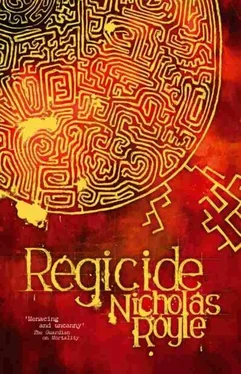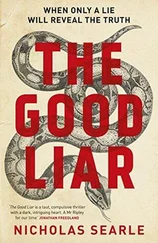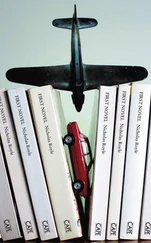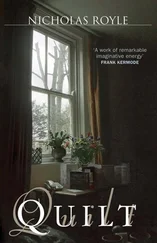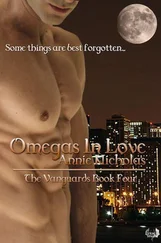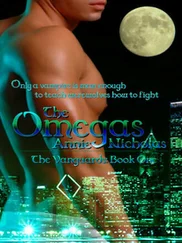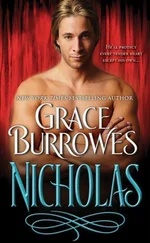I barged into the shop just as two figures entered from the street.
‘Fuck,’ I said as I took in their appearance and turned back to the passage. But already they were coming for me. Stooped, twisted, black-haired bodies but with unmistakably human features, they covered the distance between the door and the counter in a heartbeat. I slammed the passage door after me and raced for the back door, which the dark-haired girl was holding open for me. As I fled across the space of the back room I heard the dog, no longer running in its wheel, give a powerful tug on its chain leash. It could smell my fear and it wanted blood.
The two creatures smashed through the door behind me into the passage and I leapt for the open doorway beyond the old wooden staircase. The girl closed and locked it after me in a flurry of hand movements that seemed to melt into one action.
‘This way,’ she said and we took off down the back entry. I’m not saying she skated over the cobbles but she moved faster than the things behind us and somehow I was able to keep up with her. We ran for at least a mile and a half. ‘In here,’ she panted, pressing her weight against a solid-looking door at the back of what looked like an abandoned cinema. The door gave and I squeezed through after her.
‘My name’s Stella. You’re safe now,’ she said when she’d got her breath back. I was still bent double. ‘You know, if you’re going to stick around you’ll have to do something about your appearance.’
Stella moved away from me and I saw where we were. Not a cinema at all, but an ice rink. One or two bare bulbs burned, causing the expanse of ice to glow dully beyond the rows of seats. The girl slipped onto the ice. I couldn’t imagine how she’d had time to lace up her skating boots.
I sensed there was something wrong with my father even before I was told. As I sat on the stairs and watched him carefully thread the buckle of his trench coat and place his trilby on his head, tipping it slightly to one side in the hall mirror, I was aware of feeling vaguely anxious. Maybe it was the way he avoided his own eyes in the glass and just observed the angle of his hat. He would go through into the kitchen to say a quiet goodbye to my mother. I rarely heard what they said to each other at these times. Their voices were a low murmur. Then he would come back into the hall and shout up the stairs, ‘Ta-ra, Carl. Look after your mother.’ He didn’t know I’d been sitting watching him get ready so I would always creep away from the banisters before shouting back, ‘Bye’.
He’d open the front door and close it gently behind him and I would run to my room to watch him walk up the street. Always the same, he walked with a relaxed, confident step, nodding at the Hansons in the garden outside their prefab and turning to look behind before crossing the road. I always thought he might see me at that point, but his eyes remained on the road.
I sat in my room for a bit, picking up books and reading the first lines before putting them back, fingering my jam jar filled with half-completed fishing floats made out of pampas grass stems, which Jim, the window cleaner, pinched for me from the garden of the big house at the bottom of Heath Street. I couldn’t settle to anything. I turned my little clock radio on but it was always playing ‘If You Leave Me Now’ by Chicago, so I got up and mooched around the landing and stairs for a couple of minutes, then went downstairs and into the kitchen.
My mother was leaning over the work surface rolling out pastry. There was flour all over the lino around her feet. I looked at the pastry. She’d rolled it completely flat and it had split in a dozen places yet she carried on rolling like a faulty machine and the flour spotted the sleeves of her cardigan and caught in the long dark hair drawn across her face.
How old was I then? Twelve, thirteen? I reached across and took the rolling pin from her. She didn’t resist, just pressed her hands against the worktop for support and cried. I hugged her around the waist and felt her body shake. Eventually she turned enough to take me into her arms and we stayed that way for up to a minute. The edge of the worktop was pressing uncomfortably into my back, but, as my father had said, I had to look after my mother. Then I felt foolish because I realised I probably wasn’t helping much at all by allowing her to comfort me .
My mother pulled away and took a paper tissue from her cardigan sleeve. She dabbed at the corners of her eyes and blew her nose. There were little shiny paths running through the powder down her cheeks.
‘It’s Dad, isn’t it?’ I said and she started crying again. I’d seen my mother cry at films on the television but never like this. There had to be something terribly wrong with my father. I knew it couldn’t be money or work, or his parents dying, because they were both dead. It had to be his health. He was sick. But how sick?
‘What’s wrong with him?’ I asked, my voice muffled by my mother’s leaf-patterned skirt, but she wouldn’t tell me.
‘He’ll be all right,’ she said. ‘Don’t worry. He’ll be all right again soon.’
‘What is it?’ I persisted, crying as well now because I was panicking.
‘You don’t need to know.’
I did. I did need to know. Not knowing, I felt helpless. Of course, my mother knew I would feel just as helpless if I did know, which was why she didn’t tell me.
Over the next few weeks my mind worried at this mystery like a dog working at an old knot of rags. What was wrong with my father? I watched him closely for clues but he was just the same as always with me. Whatever it was that was wrong with him grew like all secrets grow in the minds of children until it assumed terrible proportions. If it was something that couldn’t be spoken about then it had to be something to do with some part of him that was taboo even under normal circumstances.
We went out for a day to some woodland about an hour’s drive from home. My father drove in his usual calm but firm way. My mother sat wreathed in a cloud of the perfume he always gave her at Christmas. I sat in the back playing with his hat, reading the maker’s label — Dunn & Co — and stroking the feather in the chequered band. After walking in the woods for a mile or two — sometimes I ran on ahead kicking through the leaves and could hear them talking in low voices behind me — we stopped for lunch at a pine-panelled cafeteria. My father said I could have ten pence if I would eat a piece of Blue Stilton. I put it in my mouth and tried to swallow without chewing it. He gave me the ten pence but I couldn’t swallow the cheese and I had to spit it out. He and my mother laughed along with the people on the next table and he took back his ten pence.
All the time we were out I was worrying about him and guessing what might be wrong with him. I decided that for it to be such an unspeakable problem it had to have something to do with going to the toilet, so when my father announced after the cheese and biscuits that he was going to the toilet I got up and said I was going as well. I waited for a look to pass between him and my mother but there was none. I followed him nervously to the door marked GENTLEMEN. If this was going to be the moment of truth he might take the opportunity to talk to me about it. Suddenly I didn’t want to know and I almost turned back but he’d reached the door and was holding it open for me. I smelt the disinfectant and dirty hand-towels and had to go in.
My father and I stood at neighbouring stalls — the first time I could remember us doing that — and I looked, because I had to.
It was all there and I couldn’t see anything wrong. When we left the gents I was doubly relieved.
Читать дальше
